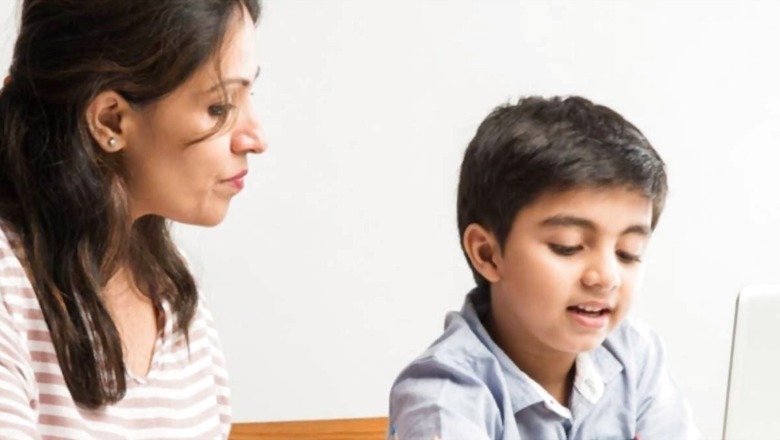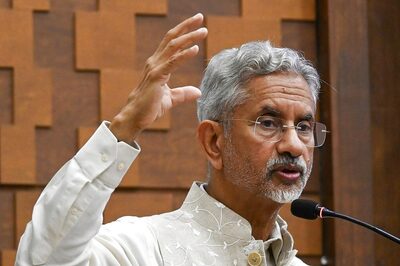
views
In this era of technological growth, Artificial intelligence (AI) has evolved to be a significant force in many industries, including education. The incorporation of artificial intelligence-powered tools like ChatGPT into classrooms has spurred discussions among educators about the substantial influence it has on the way students learn and teachers teach.
AI is transforming education by providing students with personalised learning experiences and on-demand guidance, notably in the form of chatbots like ChatGPT. Virtual ChatBot assistants are capable of answering students’ queries instantaneously, offering clarity on complex concepts and themes. The learning process has been greatly streamlined by these developments, however, not all educators agree that ChatGPT and AI are a way out for students, particularly when it comes to an overreliance on AI-generated content without ensuring its veracity.
Archana Singh, Academic Coordinator, Amity International School, Saket expressed her concerns regarding the excessive reliance on AI-generated content. “The content provided by ChatGPT is oftentimes repetitive and this can lead to a decline in critical thinking and analytical abilities,” Singh said.
While embracing the constantly changing AI landscape, teachers are carefully weighing the potential disadvantages of implementing artificial intelligence in the classroom. One primary concern is the potential decline of human interaction in teaching. Nevertheless, teachers contend that while AI can offer quick solutions, it lacks the emotional connection and guidance that only a human educator can offer, making it indispensable.
Sameer Arora, Vice Principal, Shiv Nadar School, Gurgaon states that in an era where the majority of tasks would be automated, the role of the teacher in the classroom has become increasingly vital and has grown beyond communicating fundamental concepts or knowledge. “AI’s lack of emotional intelligence may limit its ability to understand and efficiently meet students’ emotional and psychological needs. This problem stems from AI’s failure to read nonverbal clues, subtleties, and contextual aspects necessary for understanding and responding to students,” he adds.
Alka Kapur, Principal, Modern Public School, Shalimar Bagh says, “Teachers inspire curiosity, adapt to individual student’s needs, and cultivate critical thinking and interpersonal skills that are fundamental for holistic student development.”
‘AI should support teachers, not replace them’
There is a growing consensus that artificial intelligence should support educators rather than replace them. It’s vital to take a balanced strategy that makes the most of AI’s advantages while keeping human interaction traits like empathy and critical thinking. Teachers have a crucial role to play in illustrating to students how to utilise AI effectively while motivating them to critically evaluate the information they are given by the AI platforms.
According to Arora, training students in the art of effective inquiry using Generative AI is something that educational institutes will have to explore. “I believe that tools like ChatGPT should compel educators and educational institutes to reevaluate and rethink their assignment models and strategies. If students can easily rely on AI models for quick solutions, this suggests a requirement for enhancement of our educational frameworks to align with the integration of AI,” he highlighted.
Dr Abhinanda Sarkar, Faculty Director, of Great Learning, believes AI will not replace teachers, but it will change some aspects of the roles teachers play. “In that respect, the impact of AI on teachers is similar to the impact of AI on, say, doctors, engineers, or writers. Like in other professions, AI will free up the teacher’s time to provide the human touch to education, including the inculcation of values and the mentoring towards success,” says he.
He went on to explain with an example, “To break this down a little bit more, consider a few of the tasks that teachers do. First, preparing lessons. Here AI is making information collection easier. Teachers can focus on making lessons interesting, useful, and fun for the students they know – leaving the factual matters to AI. Second, homework. Here, the sense is that post-primary students will soon use AI to source and write material. So, the teacher’s task will be to guide the personal journey of each student and to customise their responses to the stage of learning advancement (or difficulty) they are in. Third, examinations. Here, the creative side of generative AI can aid in creating interesting and challenging exams,” says Sarkar.
The potential presented by AI excites some individuals, while others express their apprehension about how well-equipped they are to leverage and navigate these technologies efficiently. Whatever their views on AI, educators remain steadfast in their mission to raise well-rounded and knowledgeable individuals. The debate that still rages on over AI’s place in education is evidence of the profession’s commitment to providing students with the finest learning opportunities in a setting that is ever-evolving.




















Comments
0 comment